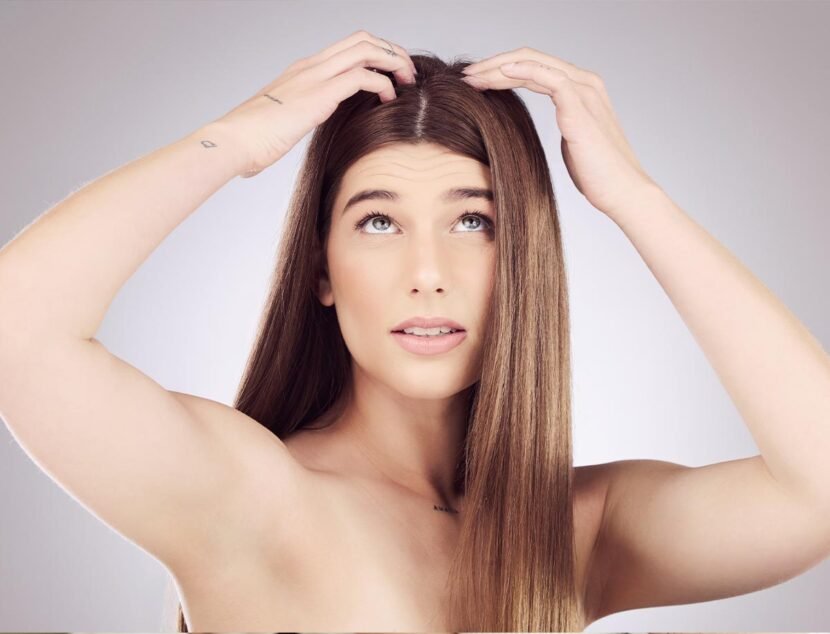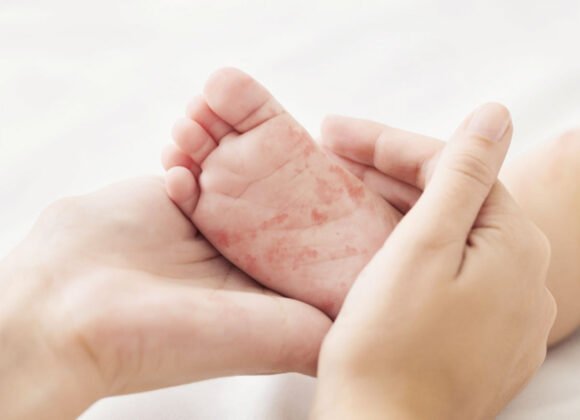Scalp eczema, also called seborrheic dermatitis, is a prevalent skin disorder affecting the scalp. It manifests as red, itchy, and flaky patches, causing discomfort and potential embarrassment for those affected. Symptoms vary among individuals but typically include redness, itching, flaking, and occasionally oozing or crusting of affected areas.
The severity of symptoms can range from mild to severe and may fluctuate over time. In some instances, scalp eczema can result in hair loss, which can be distressing for many people. The condition can extend beyond the scalp, affecting areas such as the face, ears, and chest.
It is crucial to recognize these symptoms and seek medical advice if scalp eczema is suspected. While the precise cause remains unclear, it is believed to result from a combination of genetic, environmental, and immune system factors. Scalp eczema is not contagious but can be chronic, often requiring ongoing management to control symptoms effectively.
Key Takeaways
- Itchy, red, and flaky patches on the scalp are common symptoms of scalp eczema.
- Scalp eczema can lead to hair loss and affect the overall health of the hair.
- Using gentle, fragrance-free hair products and avoiding scratching can help manage the discomfort of scalp eczema.
- Treatment options for scalp eczema include medicated shampoos, topical corticosteroids, and antihistamines.
- Triggers for scalp eczema flare-ups can include stress, harsh hair products, and environmental factors.
The Impact of Scalp Eczema on Hair Health: What You Need to Know
The Physical Consequences of Scalp Eczema
The constant itching, flaking, and inflammation associated with scalp eczema can cause hair breakage and even hair loss if left untreated. The persistent scratching and irritation of the scalp can weaken the hair follicles, leading to thinning or bald patches.
The Emotional Toll of Scalp Eczema
Moreover, the flaking and irritation associated with scalp eczema can be embarrassing and may cause individuals to feel self-conscious about their appearance. Furthermore, the use of certain hair care products or treatments may exacerbate scalp eczema symptoms, leading to further damage to the hair and scalp.
Seeking Treatment and Maintaining Healthy Hair
It is essential for individuals with scalp eczema to be mindful of the products they use and to seek out gentle, non-irritating options that will not worsen their condition. Additionally, seeking treatment for scalp eczema can help to improve overall hair health and prevent further damage. By addressing the underlying inflammation and irritation of the scalp, individuals can work towards maintaining healthy hair and a comfortable scalp.
Managing Itchy Skin: Tips for Dealing with the Discomfort of Scalp Eczema
Dealing with the discomfort of scalp eczema can be challenging, but there are several tips that can help individuals manage their symptoms and find relief. One of the most important things to do is to keep the scalp clean and well-moisturized. Using a gentle, fragrance-free shampoo and conditioner can help to soothe the scalp and reduce itching and flaking.
It is also important to avoid scratching the affected areas, as this can further irritate the skin and lead to more discomfort. In addition to proper hair care, individuals with scalp eczema may benefit from using over-the-counter or prescription-strength topical treatments to help reduce inflammation and itching. These may include corticosteroid creams or ointments, as well as medicated shampoos or oils specifically designed to treat scalp eczema.
It is important to follow the instructions provided by a healthcare professional when using these treatments, as overuse or misuse can lead to further skin irritation. Furthermore, managing stress levels and practicing relaxation techniques can also help to reduce itching and discomfort associated with scalp eczema. Stress has been known to exacerbate eczema symptoms, so finding ways to relax and unwind can be beneficial for overall skin health.
Additionally, wearing loose-fitting hats or avoiding tight hairstyles can help to minimize irritation of the scalp and provide some relief from itching.
Eczema Treatment Options: How to Address Scalp Eczema
There are several treatment options available for individuals with scalp eczema, ranging from over-the-counter remedies to prescription-strength medications. One common treatment for scalp eczema is the use of medicated shampoos or oils that are specifically formulated to help reduce inflammation and flaking of the scalp. These products often contain ingredients such as coal tar, salicylic acid, or ketoconazole, which can help to soothe the skin and reduce itching.
In more severe cases of scalp eczema, healthcare professionals may prescribe corticosteroid creams or ointments to help reduce inflammation and itching. These medications are applied directly to the affected areas of the scalp and can provide relief from symptoms when used as directed. In some cases, oral medications may also be prescribed to help manage severe or persistent scalp eczema.
In addition to topical treatments, individuals with scalp eczema may benefit from making lifestyle changes to help manage their symptoms. This may include avoiding harsh hair care products, minimizing stress levels, and practicing good hygiene habits to keep the scalp clean and moisturized. Working closely with a healthcare professional can help individuals find the most effective treatment plan for their specific needs.
Identifying Eczema Triggers: What Can Cause Scalp Eczema Flare-Ups
Identifying potential triggers for scalp eczema flare-ups can be helpful in managing the condition and reducing the frequency and severity of symptoms. Some common triggers for scalp eczema include stress, harsh hair care products, weather changes, and certain foods or allergens. Stress has been known to exacerbate eczema symptoms in many individuals, so finding ways to manage stress levels through relaxation techniques or therapy can be beneficial.
In addition, using gentle, fragrance-free hair care products can help to minimize irritation of the scalp and reduce the risk of flare-ups. Harsh shampoos or styling products that contain alcohol or fragrances can further irritate the skin and lead to increased itching and flaking. It is important for individuals with scalp eczema to be mindful of the products they use and seek out gentle options that will not worsen their condition.
Furthermore, weather changes can also impact scalp eczema symptoms, as extreme temperatures or humidity levels can lead to increased itching and discomfort. Protecting the scalp from harsh weather conditions by wearing a hat or using a scarf can help to minimize irritation and reduce the risk of flare-ups. Additionally, being aware of any potential food allergies or sensitivities that may contribute to scalp eczema symptoms can be helpful in managing the condition.
The Connection Between Scalp Eczema and Hair Loss: What You Should Be Aware Of
The Impact of Hair Care Products
Furthermore, the use of certain hair care products or treatments may exacerbate scalp eczema symptoms and contribute to hair loss. Harsh shampoos or styling products that contain alcohol or fragrances can further irritate the skin and weaken the hair follicles. It is important for individuals with scalp eczema to be mindful of the products they use and seek out gentle options that will not worsen their condition or contribute to hair loss.
Preventing Hair Loss
Seeking treatment for scalp eczema is crucial in preventing further damage to the hair and scalp. By addressing the underlying inflammation and irritation of the scalp, individuals can work towards maintaining healthy hair and preventing hair loss associated with scalp eczema.
Effective Treatment Options
Working closely with a healthcare professional can help individuals find effective treatment options that will improve overall hair health and reduce the risk of hair loss.
Preventing Scalp Eczema: How to Care for Your Scalp and Maintain Hair Health
Preventing scalp eczema flare-ups involves proper care of the scalp and maintaining overall hair health. One important step in preventing flare-ups is using gentle, fragrance-free hair care products that will not irritate the skin or lead to increased itching and flaking. It is also important to keep the scalp clean and well-moisturized by using a mild shampoo and conditioner that will not strip the skin of its natural oils.
In addition, individuals with scalp eczema should avoid scratching or picking at their scalp, as this can further irritate the skin and lead to more discomfort. Using over-the-counter or prescription-strength topical treatments as directed by a healthcare professional can help reduce inflammation and itching associated with scalp eczema. These treatments may include corticosteroid creams or ointments, as well as medicated shampoos or oils specifically designed to treat scalp eczema.
Furthermore, maintaining good hygiene habits such as regular shampooing and keeping the scalp clean can help prevent flare-ups of scalp eczema. It is also important to manage stress levels through relaxation techniques or therapy, as stress has been known to exacerbate eczema symptoms in many individuals. By taking these steps to care for the scalp and maintain overall hair health, individuals can work towards preventing flare-ups of scalp eczema and reducing discomfort associated with the condition.
FAQs
What is scalp eczema?
Scalp eczema, also known as seborrheic dermatitis, is a common skin condition that causes redness, itching, and flaking on the scalp. It can also affect other oily areas of the body, such as the face, upper chest, and back.
What are the symptoms of scalp eczema?
Symptoms of scalp eczema include redness, itching, flaking, and sometimes even crusting. It can also lead to hair loss in severe cases.
How does scalp eczema impact hair health?
Scalp eczema can lead to hair loss if left untreated. The constant itching and inflammation can damage the hair follicles and cause the hair to become brittle and weak.
What are the common triggers for scalp eczema?
Common triggers for scalp eczema include stress, hormonal changes, cold weather, certain hair care products, and a yeast-like fungus called Malassezia that is naturally present on the skin.
How is scalp eczema treated?
Treatment for scalp eczema may include medicated shampoos, topical corticosteroids, antifungal treatments, and lifestyle changes such as managing stress and avoiding harsh hair care products.
Can scalp eczema be cured?
While there is no cure for scalp eczema, it can be managed effectively with proper treatment and lifestyle changes. It may also go into remission for periods of time.




